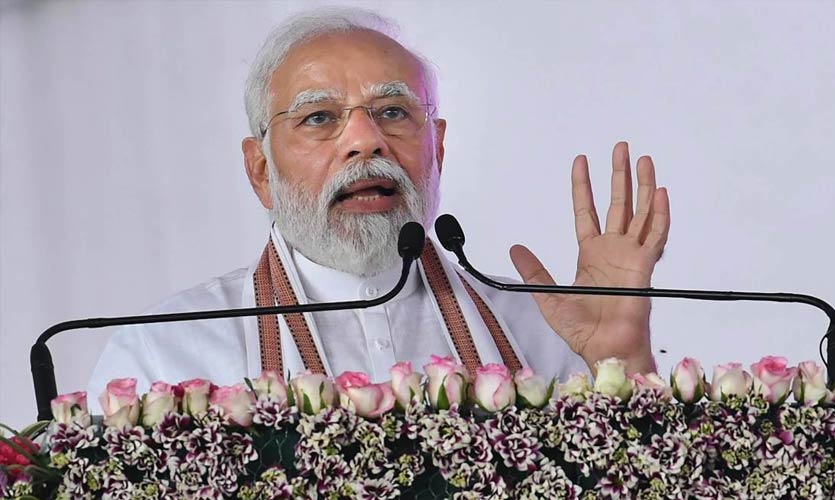On April 24, Prime Minister Narendra Modi visited the union territory of Jammu and Kashmir for the first time since the abrogation of Article 370, in August 2019. The Pakistani government described his visit as “yet another ploy to project fake normalcy in the occupied territory”. In response to Pakistan’s statement on PM Modi’s visit, India said that the “terror state” has no right to comment.
According to CNN-News18, top government officials said, “In recent days, before PM’s visit, terror activities were increased by Pakistani handlers and all killed terrorists were Pakistanis. Kashmiris also understand that all support offered by Pakistan is only to increase terror activities.”
Additionally, Pakistan has expressed “strong condemnation” for India laying the foundation stones for the Ratle and Kwar Hydroelectric Projects (HEPs) on the Chenab River. “The construction of Ratle hydroelectric plant, as designed by India, has been disputed by Pakistan, and for Kwar Hydroelectric Plant India has so far not fulfilled its Treaty obligation of sharing information with Pakistan,” said the country.
On Friday, Prime Minister Narendra Modi laid the foundation stones for the Ratle and Kwar hydroelectric projects on the Chenab river in the Kishtwar district, which will generate 850 MW and 540 MW of electricity, respectively. In addition, he inaugurated the Banihal-Qazigund Road Tunnel at a cost of around Rs 5,300 crores. The Kwar hydroelectric project is to be built on the same river at a cost of over Rs 4,500 crores. By building the 8.45 kms tunnel between Banihal and Qazigund, the distance between the two towns will be reduced by 16 kms, and the time taken to travel between the two will be decreased by about an hour and a half. Furthermore, the PM laid the foundation stone for the Delhi-Amritsar-Katra Expressway, and inaugurated a 500 KW solar power plant at Palli village in Samba.
PM Modi’s visit to the region was his first since his government abolished the special status for J&K in August 2019. He interacted with the people and gram sabhas, and visited several prominent projects. The prime minister was accompanied by top UAE business leaders on his trip, highlighting the support of industrialists and investors from a leading Islamic country, as the BJP government pitched a post-Article 370 phase for the state.
“I am here with a message of development. To give speed to development in J&K, projects worth over Rs 20,000 crore have been inaugurated today. This year, Panchayati Raj Day is being celebrated in J&K. This signals a new development. Democracy has reached the grassroots level,” said the prime minister. He also said that the people of Jammu and Kashmir had been deprived of a three-tiered Panchayati Raj system for many years.
According to Pakistan, PM Modi’s visit to Kashmir and the laying of foundation stones for two dams on the Chenab river, violated the Indus Waters Treaty (IWT). Pakistan’s foreign office has claimed that in the past few months, India has made numerous attempts to divert attention away from the underlying causes of the Kashmir dispute. Pakistan has called on India to fulfil its obligations under the IWT, and refrain from taking measures harmful to the framework. The policy applies to the Indus River waters and its tributaries that flow through both Pakistan and India, administered by the 1960 Indus Waters Treaty of the World Bank, and signed by the first PM of India, Jawaharlal Nehru, and the second president of Pakistan, Ayub Khan.
Read more: European Shares Set To Open Lower Despite Macron’s Re-election, Euro Falls
As a result of the IWT, the waters of the eastern rivers such as Sutlej, Beas, and Ravi, went to India, and those of the west, including Indus, Jhelum, and Chenab, went to Pakistan, minus a few non-consumptive uses for India. Pakistan’s foreign office further declared that Kashmiris will continue to receive all the support possible from Pakistan in their “just struggle” for self-determination.
Bilateral relations between India and Pakistan have deteriorated after New Delhi announced in August 2019, that it was withdrawing the special status of Jammu and Kashmir, and bifurcating it into two union territories. The Indian government has repeatedly told Pakistan that Jammu and Kashmir is, and always will be, part of India. Furthermore, it urged Pakistan to accept the realities of the situation and stop the propaganda against India.
India has also conveyed to Islamabad that it desires normal neighbourly relations that are free of terror, hostility, and violence.










